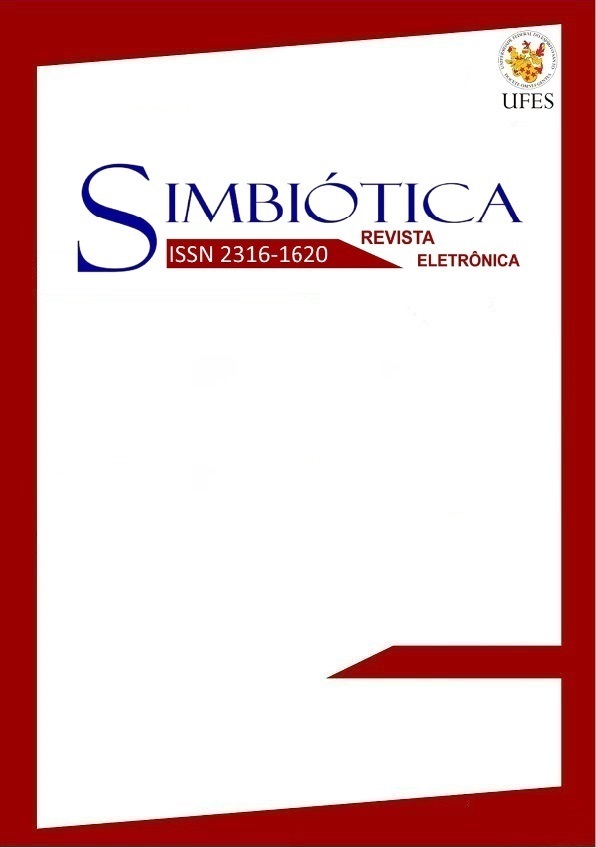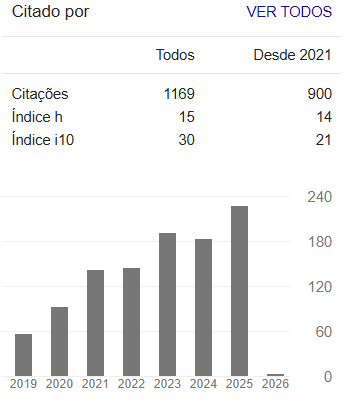Trayectorias de la violencia: Las experiencias fronterizas de mujeres peruanas entre Tacna (Perú) y Arica (Chile)
DOI:
https://doi.org/10.47456/simbitica.v7i3.33707Resumen
The article discusses the strategies articulated by Peruvian women in the border area between Chile and Peru to confront the historical legitimations of gender violence in this territory. In Peru, their trajectories are marked by violations, labor exploitation, kidnapping and slave labor. In Chile, other violence and discrimination (labor, documentary, sexist aggressions) persist, being supported in a discourse on the ethnic-national inferiority of Peruvians. Thus, there is a tension between social legitimacy and legal illegality, and between agency and subordination as far as gender violence is concerned. Supported by ethnographic data, we will define this tension as a process that (re) inscribes, in the vital trajectories of women, disparate forms of marginalization and border crossing.
Keywords: Gender, violence, female migration, Chile-Peru border.
Resumen
El artículo discute las estrategias articuladas por las mujeres peruanas de la zona fronteriza entre Chile y Perú para enfrentar las legitimaciones históricas de la violencia de género en este territorio. En Perú, sus trayectorias están marcadas por violaciones, explotación laboral, secuestro y trabajo esclavo. En Chile, otras violencias y discriminaciones (laborales, documentales, agresiones machistas) persisten, siendo apoyadas en un discurso sobre la inferioridad étnico-nacional de las peruanas. Se observa, así, una tensión entre legitimidad social e ilegalidad jurídica, y entre agencia y subordinación en lo que concierne a la violencia de género. A partir de datos etnográficos, definiremos esta tensión como un proceso que (re)inscribe, en las trayectorias vitales de las mujeres, formas dispares de marginación y cruce fronterizo.
Palabras clave: Violencia, género, migración femenina, frontera Chile-Perú.
Resumo
O artigo discute as estratégias articuladas pelas mulheres peruanas na zona fronteiriça entre Chile e Peru para enfrentar a legitimidade histórica da violência de gênero neste território. No Peru, suas trajetórias são marcadas por estupro, exploração laboral, sequestro e trabalho escravo. No Chile, outras formas de violência e discriminação (laborais, documentais, agressões machistas) persistem e são apoiadas por um discurso sobre a inferioridade étnica e nacional das mulheres peruanas. Assim, existe uma tensão entre legitimidade social e ilegalidade legal, e entre agência e subordinação em relação à violência de gênero. A partir de dados etnográficos, definiremos esta tensão como um processo que (re)inscreve, nas trajetórias vitais das mulheres, formas díspares de marginalização e de passagem de fronteiras.
Palavras-chave: Violência, gênero, migração feminina, fronteira Chile-Peru.
Descargas
Publicado
Número
Sección
Licencia
Derechos de autor 2020 Menara Lube Guizardi, Eleonora López Contreras, Felipe Valdebenito, Esteban Nazal

Esta obra está bajo una licencia internacional Creative Commons Atribución-NoComercial 4.0.
Autores que publicam nesta revista concordam com os seguintes termos:
a. Autores mantém os direitos autorais e concedem à revista o direito de primeira publicação, com o trabalho simultaneamente licenciado sob a Creative Commons - Atribuição-NãoComercial 4.0 Internacional.
b. Compartilhar - copiar e distribuir o material em qualquer meio ou formato.
Adaptar - remix, transformar e construir sobre o material para qualquer finalidade, inclusive comercial.
c. Autores têm autorização para assumir contratos adicionais separadamente, para distribuição não-exclusiva da versão do trabalho publicada nesta revista (ex.: publicar em repositório institucional ou como capítulo de livro), com reconhecimento de autoria e publicação inicial nesta revista.
d. Autores têm permissão e são estimulados a publicar e distribuir seu trabalho online (ex.: em repositórios institucionais ou na sua página pessoal) a qualquer ponto antes ou durante o processo editorial, já que isso pode gerar alterações produtivas, bem como aumentar o impacto e a citação do trabalho publicado (Veja O Efeito do Acesso Livre).
Authors who publish in this journal agree to the following terms:
a. Authors retain the copyright and grant the magazine the right of first publication, with work simultaneously licensed under the CCreative Commons - Atribuição-NãoComercial 4.0 Internacional.
b. Share - copy and distribute the material in any medium or format.
Adapt - remix, transform and build on the material for any purpose, including commercial.
c. Authors are authorized to take additional contracts separately, for non-exclusive distribution of the version of the work published in this journal (eg, publish in institutional repository or as a book chapter), with acknowledgment of authorship and initial publication in this journal.
d. Authors are allowed and encouraged to publish and distribute their work online (eg.: in institutional repositories or on their personal page) at any point before or during the editorial process, as this can generate productive changes as well as increase the impact and the citation of the published work (See The Effect of Free Access).












